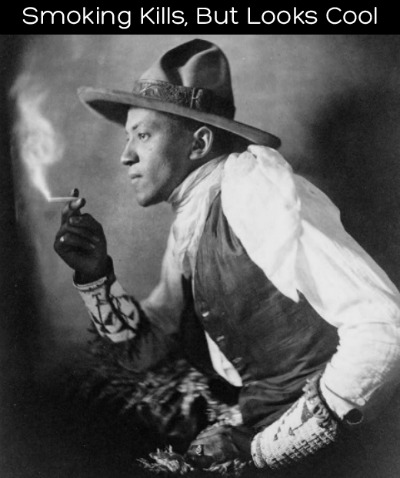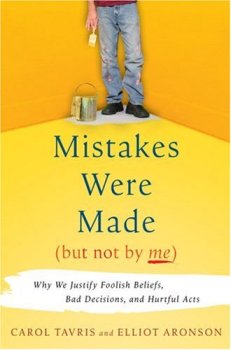
(Photo Credit: Disorderfeed)
If you study psychology there is a very good chance that you will be introduced to the theory of cognitive dissonance. Originally proposed over fifty years ago by Leon Festinger this classic and remarkably robust theory suggests that a motivational state of inner tension is triggered by logically inconsistent ways of thinking. The mindset of the smoker is often used as a way of explaining cognitive dissonance in the 'real world', e.g, the smoker who thinks:
"I love a cigarette after a big meal"
"I know that smoking is really bad for my health"
According to Carol Tavris & Elliot Aronson dissonance results in mental discomfort, ranging from minor pangs to deep anguish and as such, people are unable to rest easy until they find a way to reduce it. In the case of a smoker, the most obvious way to reduce dissonance would be to stop smoking, but what happens when the smoker tries to quit but can't? In this case the smoker has to reduce dissonance through the careful art of self delusion e.g., "The thing is, I know if I stop smoking I'll gain lots of weight and that wouldn't be healthy would it?"
Listen & learn
To learn more about cognitive dissonance and in particular how it reinforces our decisions and beliefs, even the really bad ones, Click Here to listen to an excellent radio inteview with social psychologist Dr. Carol Tavris.
Related Reading

From the Inside Flap
Tavris and Aronson have combined their formidable skills to produce a gleaming model of social insight and scientific engagement. Make no mistake, you need to read this book (Robert B. Cialdini, author of Influence: Science and Practice).
Why do people dodge responsibility when things fall apart? Why the parade of public figures unable to own up when they screw up? Why the endless marital quarrels over who is right? Why can we see hypocrisy in others but not in ourselves? Are we all liars? Or do we really believe the stories we tell?
In this terrifically insightful, engaging new book, renowned social psychologists Carol Tavris and Elliot Aronson take a compelling look into how the brain is wired for self-justification. When we make mistakes, we must calm the cognitive dissonance that jars our feelings of self-worth. And so we create fictions that absolve us of responsibility, restoring our belief that we are smart, moral, and right - a belief that often keeps us on a course that is dumb, immoral, and wrong. Backed by years of research, Mistakes Were Made (But Not by Me) offers a fascinating explanation of self-deception - how it works, the harm it can cause, and how we can overcome it. Turn the page, but be advised: You will never be able to shun blame quite so casually again.
See following link for full details.
Mistakes Were Made (But Not by Me): Why We Justify Foolish Beliefs, Bad Decisions, and Hurtful Acts

Cognitive Consequences of Forced Compliance by Leon Festinger & James M. Carlsmith (1959)
I will be making this classic piece of research on cognitive dissonance available for free download as part of the psychology eBook collection.
The Psychology eBook Collection
Please share this Psychology Blog Post with others by adding it to your social bookmarks.




www.all-about-psychology.com
A Free & Comprehensive Guide to The World of Psychology
Why We Can't Own Up When We Screw Up: Putting cognitive Dissonance Theory Into Practice




No comments:
Post a Comment